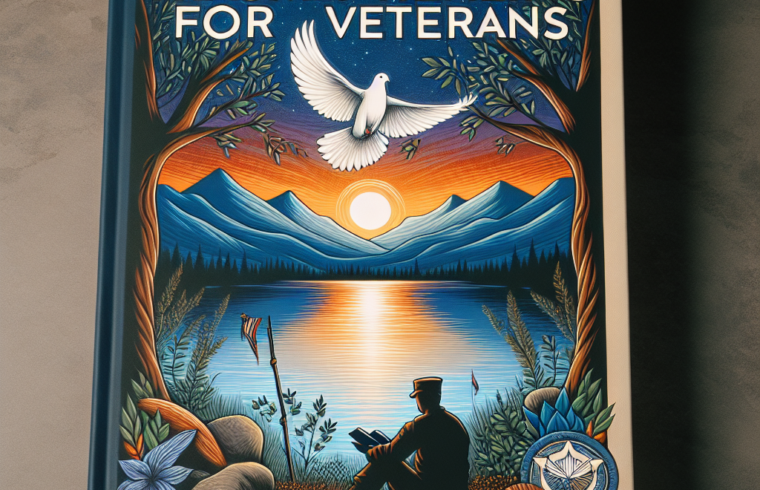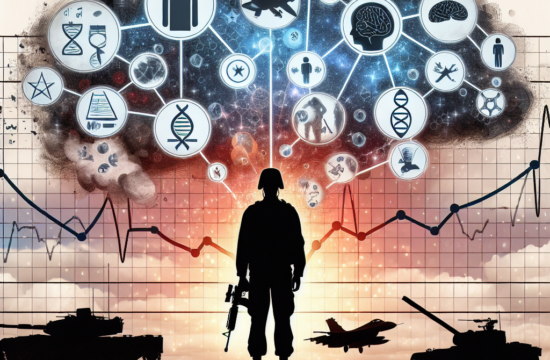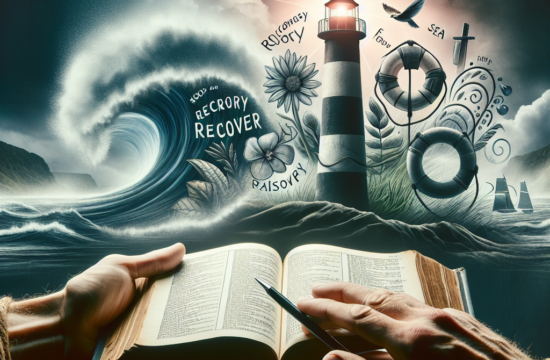==> Thank you for reading this post! Click Here If you are looking for support and Victory over PTSD.
The Ultimate Guide to Trauma Healing for Veterans
Table of Contents
- Understanding Trauma and Its Impact on Veterans
- Effective Coping Strategies for Overcoming Trauma
- The Role of Professional Help in Healing
- Building a Supportive Community for Veterans
Understanding Trauma and Its Impact on Veterans
Defining Trauma and Its Forms
When I think about trauma, it really strikes a chord, especially for veterans. We often hear about PTSD, but trauma can also take different forms—physical injuries, emotional wounds, or even vicarious trauma from experiences in combat or military service. Understanding that trauma isn’t just one thing is key to starting the healing process. It’s crucial to recognize how varied trauma can be and how it impacts different folks in different ways.
Many veterans carry around invisible burdens, and that’s where the struggle often begins. You might find yourself facing anxiety, depression, or flashbacks—all of which can stem from the trauma experienced during your service. This recognition is the first step toward understanding what you might be going through and why it feels so heavy sometimes. Being able to name your experiences can help take some of the power out of them.
It’s important to validate these feelings. I’ve talked to countless veterans who felt alone in their experiences, but that’s not the case. There’s a whole spectrum of trauma responses—knowing that can help you feel a little less isolated and provide a solid foundation for your healing journey.
The Symptoms of Trauma
Symptoms of trauma can vary wildly, and it’s not just about the big moments. For many veterans, daily life can be a constant trigger. Irritability, difficulty sleeping, and hyper-vigilance are just the tip of the iceberg. Sometimes, you might catch yourself reacting strongly to everyday situations that don’t warrant that level of stress. I’ve seen it in myself and others—those moments where you’re just overwhelmed for no apparent reason.
Additionally, there can be physical symptoms such as headaches, digestive issues, or chronic pain that seem disconnected from your mental state. It’s wild how interconnected our bodies and minds are. Recognizing these symptoms helps you understand that healing encompasses not just the mind but the whole body as well.
Learning to identify these symptoms is an ongoing process of self-awareness and self-compassion. It’s okay to not have it all figured out right away. Just acknowledging these feelings is like shedding some light on a dark corner—it helps you see what needs to be addressed.
Impact on Relationships
Trauma doesn’t just affect us personally; it ripples out into our relationships, too. I’ve found that combat trauma can create barriers between you and loved ones, making it hard to communicate and connect. The withdrawal or anger can create a rift, often leaving partners, friends, and family members scratching their heads, confused about what’s going on.
These dynamics can breed resentment and misunderstanding, which only complicate the healing journey. It’s a tough cycle to break. For veterans, it’s about finding ways to communicate your feelings and experiences. Sometimes that means seeking support or guidance to help bridge those gaps with loved ones.
If you’ve felt that strain in your relationships, know that it’s not uncommon. Finding a way to express what you’ve gone through can help others understand you better. And believe me, it can be a game-changer in reconnecting with those you care about most.
Effective Coping Strategies for Overcoming Trauma
Journaling: Writing to Heal
One of the most powerful tools I’ve discovered in my healing process is journaling. It’s like having a chat with yourself without any interruptions. When I put pen to paper, I can finally articulate feelings that swirl chaotically in my mind. It brings some clarity. Plus, it’s a great way to track progress over time.
Start simple. Write about your day, how you’re feeling, or what triggers you. You don’t have to capture every big emotion—just capturing little things can be incredibly helpful. And don’t worry about grammar or spelling; this is for your eyes only. It’s about creating a safe space for your thoughts.
Evolving your journaling practice can lead to discovering patterns in your emotions or responses to situations. It’s like giving yourself the chance to reflect and step back from your emotions, helping to tackle those feelings more effectively.
Mindfulness and Meditation
Mindfulness is another biggie when it comes to dealing with trauma. It’s all about being fully present in the moment and acknowledging your thoughts without judgment. Sounds simple, right? But trust me, it takes practice. I often started my days with just a few minutes of focused breathing or guided meditation. It’s kind of amazing how much just slowing down can help ease the chaos in your head.
There are tons of apps and resources out there! I found that creating a morning routine that incorporated mindfulness really set the tone for my day. It helped me find stillness, which I desperately needed. These moments of peace can feel like an oasis in a busy, chaotic world.
Over time, you might find your anxiety lessens and your ability to cope improves. It’s important to remember that it’s a journey—not a race. So, start small, be patient, and tune into yourself.
Physical Activity as a Coping Mechanism
Man, moving your body makes a world of difference! When I started incorporating physical activities, I could feel the stress melting away. Exercise can be a fantastic way to process emotions stored in the body and release pent-up energy. It doesn’t have to be a marathon; even a brisk walk can work wonders.
Find something you love, whether it’s hiking, dancing, or even just walking in your neighborhood. The key is to enjoy it. I’ve personally found that getting outside and embracing nature can significantly elevate your mood. Plus, the fresh air is invigorating! It’s all about finding what works for you.
Remember, consistency is vital too. Making physical activity a part of your routine can lead to those feel-good endorphins kicking in, giving a natural boost to your overall well-being.
The Role of Professional Help in Healing
Finding the Right Therapist
Let me tell you—there’s no shame in seeking professional help. Finding a therapist who understands trauma and specifically has experience with veterans can feel overwhelming, but it’s so worth it. Look for someone who specializes in trauma-informed care or has specific training in working with veterans.
The right therapist can provide a safe space to navigate your thoughts and feelings, which is a cornerstone of healing. When I found someone who really understood where I was coming from, it felt like a weight lifted off my shoulders. It’s all about connection and feeling understood.
Get Started with Recovery! Visit us for more Information and Support
Don’t be afraid to shop around. The first therapist you meet might not be the right fit—think of it like dating! You’re offering yourself a chance to heal, so make sure you find a partner who’s aligned with your journey.
Group Therapy: Strength in Numbers
Group therapy can also be an incredible part of the healing process. Sharing experiences with fellow veterans who get it can foster a sense of community and belonging. Trust me, you’re not alone in this fight. I attended a few group sessions, and the camaraderie was unlike anything I’d experienced before.
In a group setting, you can share your stories, listen to others, and even find opportunities for mutual support. Realizing that others have walked similar paths can be healing in itself. There’s something comforting about being vulnerable in a space with shared experiences.
Group therapy helps build coping skills and allows for reflection on how to navigate life after service. It’s a beautiful reminder that we can lean on each other as we walk our paths to recovery.
Medication Management
Medication isn’t for everyone, but for some veterans, it can be an essential part of the healing journey. When I first considered medication, I was skeptical but also at a point where I wanted to explore all my options. Working closely with a psychiatrist helped me weigh the pros and cons of various medications.
It’s important to approach medication thoughtfully and collaboratively. Keep in mind that it can take time to find what works for you, and it shouldn’t be viewed as a quick fix. Medications are just one tool in a larger toolbox for healing.
Ultimately, having a clear communication line with your doctor about your feelings and experiences is crucial. They can help adjust the course as needed. Remember: it’s about what feels right for you!
Building a Supportive Community for Veterans
Connecting with Other Veterans
Creating connections with fellow veterans is absolutely invaluable. There’s an unspoken bond among those who have served, and it can be comforting to share experiences with people who truly understand the ups and downs of military life. Whether through local veteran organizations, social media groups, or informal meet-ups, finding your tribe can be a game-changer in your healing journey.
Take the initiative to reach out. I started attending local events and networking with other veterans, and it opened up so many doors—not just for support but for friendships, too. It’s about finding people who resonate with your story.
These connections can be solid support systems. You’ll notice that you’re not just going through the challenges of trauma alone; instead, you have a community backing you up, ready to share both the hard and the joyful moments.
Creating Safe Spaces
Becoming an advocate for creating safe spaces to express feelings and experiences can also help the whole community heal. Whether you’re organizing events, starting a podcast, or even simply hosting get-togethers focused on open dialogue, there’s power in coming together. I love how groups like these remind us we’re all in this together!
Creating a culture where we openly discuss mental health, trauma, and healing sets the groundwork for creating an environment where veterans feel supported and heard. When we have safe spaces, we encourage vulnerability, breaking the stigma that feels so prevalent.
It’s amazing to see the shift as more veterans engage in these conversations, and it feels good to know you’re contributing to a broader change. Bringing together shared experiences and healing can foster a strong community.
Volunteering: Giving Back
One of the best ways to heal on a personal level can often be found in helping others. Volunteering your time and energy not only makes a positive impact on those around you but can also provide you with a renewed sense of purpose. There are plenty of opportunities out there—whether it’s working with fellow veterans, supporting a local nonprofit, or even starting your projects.
As I’ve volunteered, I found a sense of fulfillment that directly contributes to my healing. Seeing others thrive and knowing I played a part in it can genuinely uplift your spirit in ways you wouldn’t expect. It’s about creating a cycle of support and positivity that extends beyond your own experiences.
Creating meaningful connections through service can ripple back to you. Each act of kindness reinforces your value and reminds you of the importance of community. Give it a shot—you might be surprised at the difference it makes.
Frequently Asked Questions
What is the first step to healing from trauma?
The first step is often recognizing and validating your experiences. Understanding that you’re not alone and that it’s okay to feel the way you do is crucial. From there, consider incorporating coping strategies like journaling or reaching out to a support group.
How can I find a therapist that specializes in trauma?
Start by searching for therapists in your area who have a focus on trauma-informed care or specific experience with veterans. Local veteran organizations may have resources or recommendations, or you can check online directories. Don’t hesitate to interview potential therapists to ensure a good fit.
Is medication necessary for trauma recovery?
Not necessarily. Medication can be an option for some, but it’s not a one-size-fits-all solution. Many find success through therapy and coping strategies. Ultimately, it’s about what feels right for you and discussing options with a qualified professional.
How can I connect with other veterans?
Look for local veterans organizations, attend community events, or find online groups where veterans gather. Reaching out to fellow vets can foster connections and support systems that provide a space to share experiences and healing.












